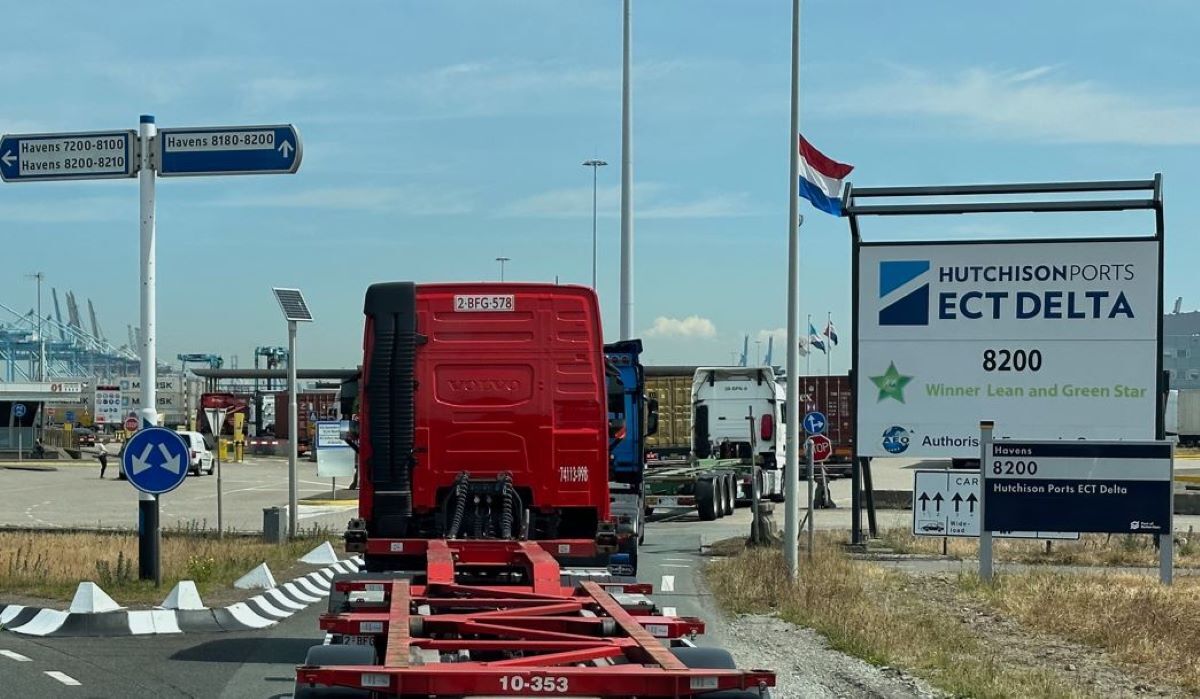Introduction to the Rotterdam Port Disruptions
The recent strikes and road blockades at one of Europe’s busiest container ports, Rotterdam, have triggered significant interruptions in transportation and logistics operations. The resulting stoppages have rippled through the supply chain, affecting freight movement, cargo deliveries, and overall operational flow.
The Core Issues Behind Port Paralysis
Central to the current disruptions are the actions of dockworkers responsible for securing and unloading containers. Their strike action has brought container traffic almost to a halt, severely impacting normal activities at the port terminals. Simultaneously, activist groups have targeted access routes, blocking truck drivers from reaching container terminals and prolonging delays in loading and unloading shipments.
Impact on Freight and Transport Operations
The combination of strikes and physical blockades has clogged up the process flow at the port, causing truck drivers to be stranded for hours. Many planned trips were canceled outright, delaying deliveries and upsetting the punctuality that customers rely on. The knock-on effect hits transport companies hard, shrinking drivers’ earnings and throwing supply chains into turmoil.
| Effect | Description | Impact de la logistique |
|---|---|---|
| Container Traffic Halt | Dockworker strikes stop container securing and unloading. | Severe slowdown of import/export shipments; backlog builds. |
| Access Blockades | Activists block terminal access roads, restricting truck movement. | Delays in cargo pick-up and delivery; missed deadlines. |
| Driver Stranding | Long wait times for truck drivers due to blockades and strikes. | Increased labor costs and reduced operational efficiency. |
| Perturbations de la chaîne d'approvisionnement | Interruption in delivery schedules and fulfillment. | Businesses face inventory shortages and customer dissatisfaction. |
Calls for Intervention and Resolution Efforts
Given the severity of the situation, various transport and freight organizations have urged local officials to step in quickly should further blockades occur. The priority is maintaining the safety of both the drivers and demonstrators while protecting the port’s vital role in trade and economic activity.
Some groups have also backed judicial actions aiming to end the ongoing dockworkers’ strike, which kicked off midweek and continues to choke container throughput, further dragging down logistics timelines.
The Balance Between Rights and Economic Impact
While the right to protest and strike is fundamental, the widespread paralysis of transport activities reveals a disproportionate social cost tied to these actions. The losses faced by freight businesses, the income dips for drivers, and supply bottlenecks in retail and manufacturing illustrate how deeply intertwined worker unrest can disrupt the seamless march of logistics and shipments.
How This Affects Global and Local Logistics
Rotterdam’s port is not just a gateway for local shipping; it’s a pivotal hub for international freight and distribution. When the gears stop turning here, containers pile up, forwarding delays occur, and freight schedules are thrown off balance internationally. Even smaller logistic operations managing international shipments may feel tremors in their planning and dispatching efforts.
The domino effect of such disruptions highlights the importance of resilient logistics networks and the need for real-time alternatives in freight scheduling, route management, and cargo handling.
What Transporters and Cargo Handlers Need to Know
- Flexibility is Key: With disruptions ongoing, adjusting freight delivery times or choosing alternate routes can help mitigate delays.
- Communication is Crucial: Staying in close contact with suppliers, carriers, and customers helps manage expectations and plan contingencies.
- Monitor Developments Closely: Quick response to evolving conditions at ports can prevent backlogs and costly shipment bottlenecks.
Réflexions finales
It’s clear the port strikes and blockades at Rotterdam have severely strained transport and logistics flows, affecting cargo shipment reliability and supply chain continuity. While the larger global logistics framework may absorb the shock without catastrophic effect, for transporters, freight forwarders, and the companies relying on timely shipments, it’s a significant hurdle that demands attention and adaptation.
Although third-party reviews and online chatter provide some insight, nothing beats firsthand experience when it comes to understanding how these interruptions impact real-world shipping and haulage. Platforms like GetTransport.com empower users with affordable, transparent, and extensive freight transportation options globally. This means whether moving bulky goods, containers, or managing office and home relocations, customers can secure reliable and cost-effective transport solutions tailored to changing circumstances. Book now and make informed shipping decisions without breaking the bank or risking delays. GetTransport.com
Looking ahead, although this disruption may seem localized, it underlines the vital importance of adaptive logistics and the value of diversified transport solutions. The situation at Rotterdam courts attention from all involved in shipping and freight forwarding, emphasizing how critical smooth port operations are to global trade flows.
GetTransport.com keeps pace with such developments, staying tuned to ensure its network can support supply continuity no matter the hurdles. Start planning your next delivery and secure your cargo with GetTransport.com.
Résumé
The strikes and blockades at Rotterdam port have led to a logistical standstill impacting container traffic, freight transport, and supply chains both regionally and internationally. Dockworkers’ strike actions combined with access road blockades have stranded drivers, delayed deliveries, and forced cancellations, demonstrating how quickly worker unrest can ripple through global logistics. Local authorities and sector coalitions are pushing for fast resolution to restore smooth cargo operations, balancing safety and economic needs.
For transporters, freight forwarders, and cargo handlers, these events spotlight the need for flexible, well-communicated logistic planning and contingency options. GetTransport.com plays a crucial role here, offering a versatile platform for reliable and cost-efficient cargo dispatch, sea and land haulage, parcel deliveries, and house or office relocations worldwide. With its comprehensive choice and transparent service, GetTransport.com ensures logistics professionals and clients can keep shipments moving with minimum fuss and maximum convenience.

 Transport et logistique perturbés au port de Rotterdam par des grèves et des blocages d'accès : ce que cela signifie pour les chaînes d'approvisionnement">
Transport et logistique perturbés au port de Rotterdam par des grèves et des blocages d'accès : ce que cela signifie pour les chaînes d'approvisionnement">